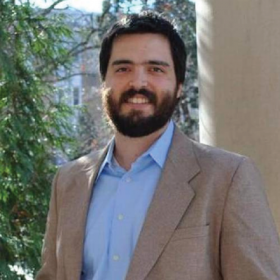
ABSTRACT: How and when do information systems construct truth? Increasingly, claims about the world are true because a system says so. For instance, I am either on, or not on, the No Fly list based solely on the contents of an information system. Understanding why and how this happens is crucial to addressing a range of challenges in the ethics of AI, infrastructure studies, and computational science.
In this talk I analyze computational timekeeping as a set of systems that “make it so”. A complex assemblage of timekeeping systems constructs the fact of the current time displayed by my phone and computer, which I in turn use to assign a truth value to a claim like “It is 5 o’clock.” To help explain this, I will describe how Network Time Protocol (NTP) enacts a specifically computational kind of memory practice. Memory practices are culturally-specific techniques of "forgetting" that both constrain and construct the inscriptions that constitute information. NTP’s memory practices are in part constituted by its algorithms, which automatically select the time signals a computer will treat as ‘true,’ and dynamically synthesize these into a signal for synchronization. I contrast NTP’s memory practices with those used in other areas of computational timekeeping, and discuss the role of declaration and power in producing the truth of time. I argue that understanding the techniques of forgetting that algorithms encode is key to ethically evaluating and intervening in them. More broadly, my work situates information studies at the center of the ethics of AI by viewing algorithms first and foremost as information systems.
BIO: Dr. Elliott Hauser studies the relationship between information, certainty, and truth. His research interests include the ethics of algorithms, infrastructure studies, and data science education. His dissertation entitled “Making Certain: Information and Social Reality" was selected for the Litwin Books Dissertation Research Award. Elliott holds a doctorate in Information Science from the University of North Carolina at Chapel Hill, where he is a member of the Royster Society of Fellows. He co-founded the online coding education platform Trinket, used by hundreds of thousands of learners worldwide, and teaches programming and information studies at the graduate and undergraduate levels.
